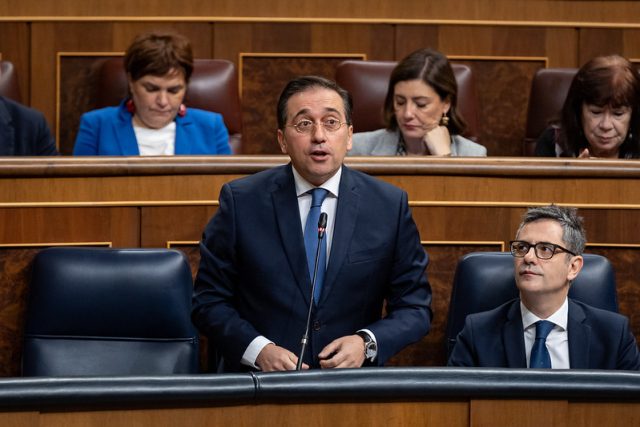
The issue of the Western Sahara airspace has taken a critical turn in the diplomatic relations between Spain and Morocco. Despite ongoing discussions between the two governments, the situation seems to have progressed without the necessary clarity, in an environment marked by opacity.
For years, the airspace of the former Spanish colony has been managed by air traffic controllers from the Canary Islands, in accordance with international law and under the supervision of the International Civil Aviation Organization (ICAO), a UN agency.
However, it has been revealed that Morocco now controls between 15% and 20% of this airspace, signaling a significant shift in the management of the territory. This issue not only concerns the sovereignty of the area but also the impact on bilateral relations and Spain’s economic interests, particularly in the Canary Islands.
In March 2022, Spain took an important step in resolving the Western Sahara dispute by changing its position on the autonomy plan proposed by Morocco for the former colony. This decision, which altered the political balance in the region, led to negotiations between the two countries for what they have termed “co-management of the airspace.”
The details of these negotiations remain secret.
The Ministry of Foreign Affairs has avoided providing details, creating uncertainty both politically and within public opinion. Meanwhile, concrete actions have been taken that reinforce Rabat’s influence over the area, such as the unilateral establishment of no-fly zones and the modification of ICAO designators for airports in the Western Sahara, further complicating the situation.
The de facto cession of the airspace to Morocco is significant, especially in an economic context like that of the Canary Islands, a region that relies on tourism and air connectivity for its development.
Experts and local politicians are concerned that, if Morocco takes full control of air navigation in the area, it could impose flight restrictions or change routes that negatively affect the region.
Despite concerns, the socialist government of Pedro Sánchez has maintained an ambiguous stance.
Minister Albares has denied in Parliament that the reports of an imminent airspace transfer, dismissing the concerns as “rumors” and asserting that there is a “clear roadmap” between the two countries.
In this context, the situation becomes even more complicated by Morocco’s use of Western Sahara airspace for military activities, which has affected the safety of the area’s air traffic. Internal reports from Aena and other Spanish aviation authorities have highlighted the difficulty in managing air traffic in these areas, with a proliferation of incidents and a lack of communication between the involved parties.
The existence of dangerous zones, activated unilaterally by Morocco without coordination with Spain, has increased security risks in the region. These actions, combined with the inability to guarantee search and rescue services in some parts of Western Sahara, underscore the technical and diplomatic challenges Spain faces in managing the region. These challenges are further aggravated by Morocco’s unilateral actions, which continue to erode Spain’s ability to maintain control over the airspace.
While Spanish authorities insist that the negotiations are limited to the technical management of the airspace, Morocco’s unilateral actions and the Spanish government’s lack of transparency have raised growing concerns.
The situation remains uncertain, and as negotiations continue, the risks to the region’s security and stability appear to be increasing. The key will lie in how these discussions are managed and how much transparency the Sánchez government decides to provide to the public and local authorities.
The continuing opacity surrounding these negotiations is alarming, as the lack of clear communication only deepens the uncertainty for Spain and its regions directly affected by this issue. The stakes are high, and the handling of the Western Sahara airspace dispute could have lasting consequences on the political, economic, and security dynamics between Spain and Morocco.



 Subscribe
Subscribe